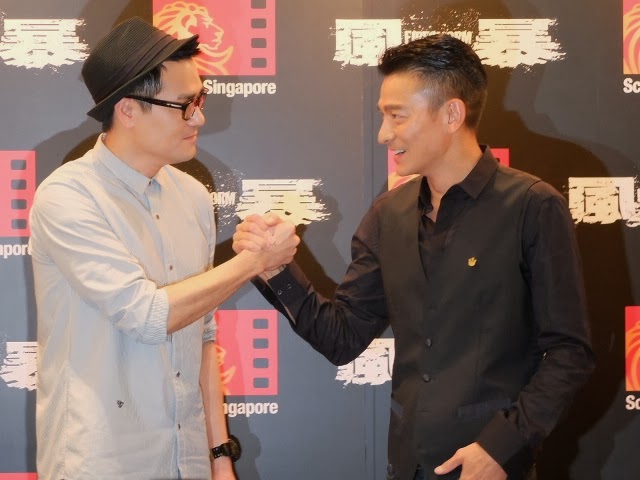iGirl (iGirl •梦情人)
Director : Kam Ka-wai
Cast : Ekin Cheng, Chrissie Chau, Dominic Ho, Connie Man, Lam Chi-Chung, Joyce Cheng
Genre : Comedy/Romance
Run Time : 95 mins
Opens : 17 March 2016
Rating : PG13 (Some Sexual References)
A movie about a man
striking up a relationship with an artificially created woman might be a novel
premise to Hong Kong filmgoers, but it’s far from a new idea and we’ve already seen
films like Mannequin, Weird Science, Lars and the Real Girl, and recently Her and Ex Machina, to
name a few. It’s very safe to say that iGirl
is far, far worse than all of the above-mentioned films. The movie’s
conceptions of gender roles are distasteful and embarrassingly retrograde.
Instead of satirising and cleverly commenting on the objectification of women, iGirl instead reinforces that notion. All
of the women in the film are either compliant robots programmed to satisfy every
whim of their male “masters”, or conniving, manipulative and intensely jealous
gold-diggers. It’s a wish fulfilment fantasy that is frankly repulsive, and
it’s quite staggering to see something like this in 2016.
There is no internal
logic to any of the sci-fi elements. With a film that apparently takes place in
the present day, it’s natural to expect a pretty good explanation for how such
cutting-edge advances in artificial intelligence technology have been made
readily available and affordable. No such luck. Believably portraying a robot is
a bigger acting challenge than one might think, and none of the three actresses
make choices deliberate or distinct enough such that they are convincing as
gynoids. The film focuses on three men and their relationships with their respective
robot girlfriends; we get a montage showing how they’re progressing and it just
so happens that each couple hits exactly the same points in their journey as
the other two. The visual effects work is largely cartoony and there’s an
inexplicable fight scene towards the film’s conclusion that’s just a mess.
Ekin Cheng, a
heartthrob back in the 90s, seems to be a little past the age to be playing
this character, who is written like he should be in his late 20s or early 30s
as opposed to Cheng’s 48. There are some reasonably sweet moments that he
shares with leading lady Chau, but these are few and far between. The
characterisation of Evan’s friends does not go past “Johnny is the vain one and
Irwin’s the fat one”. The inventor of the iGirl, ludicrously named “Dr.
Intelligence”, is bland instead of enigmatic.
iGirl is the directorial debut of Kam Ka-wai, but is co-produced by
Wong Jing, basically Hong Kong’s equivalent of Michael Bay. In China, iGirl is being released exclusively via
the online video service iQiyi, targeting “young netizens”. It seems Wong has
severely underestimated the intelligence of said “young netizens". The
possibilities of a relationship between man and shapely machine have proven to
be worthwhile fuel for the imaginations of many filmmakers, dating as far back
as Fritz Lang, whose expressionist sci-fi Metropolis
was released in 1927. Even earlier, there was the Pygmalion myth. That iGirl fails to do anything interesting
with inherently meaty subject matter is disappointing.
Summary: A shallow,
misogynistic comedy that fails to add anything remotely meaningful to the canon
of films about humankind’s relationship with artificial intelligence.
RATING: 1.5 out of 5 Stars
Jedd Jong

















































